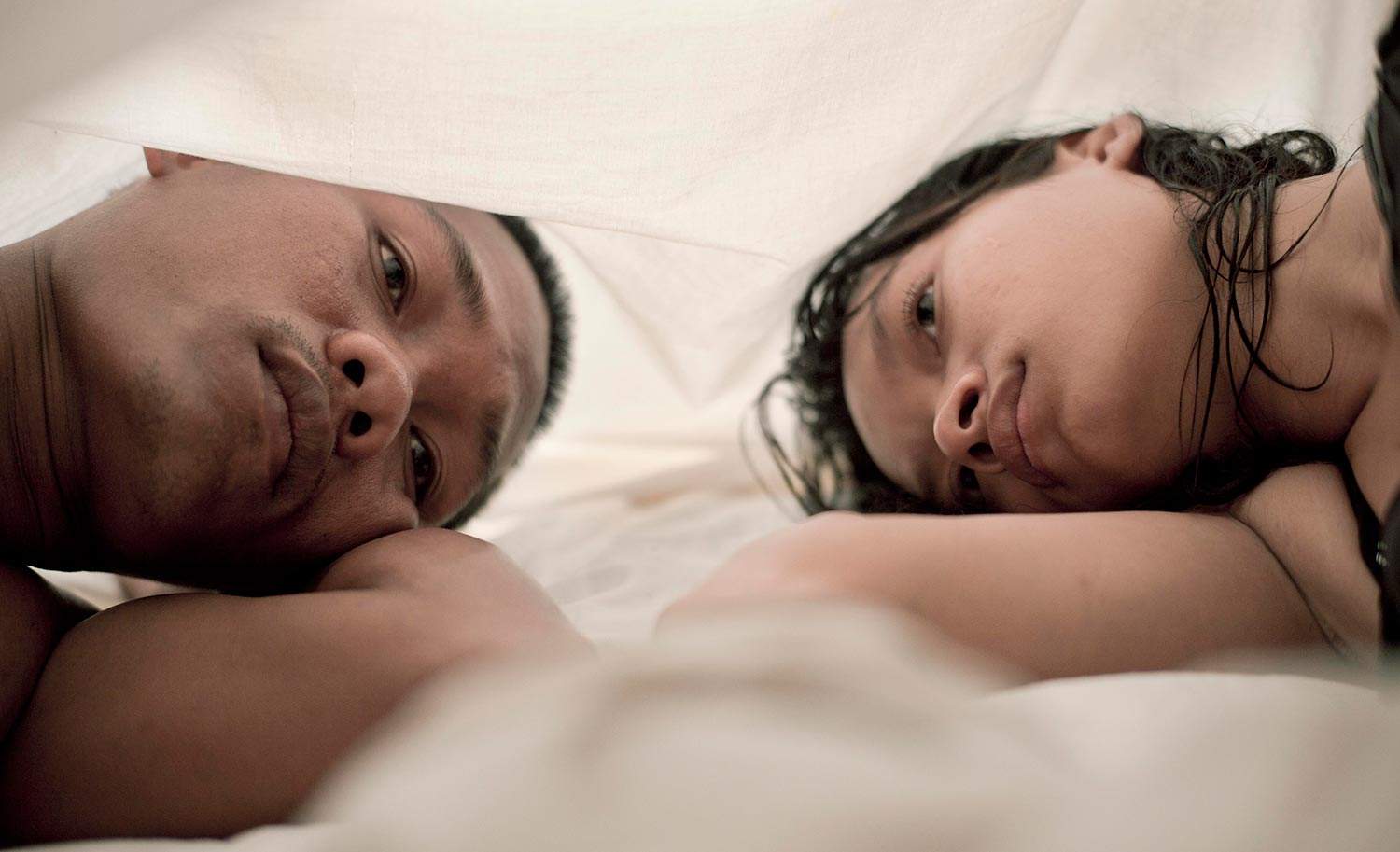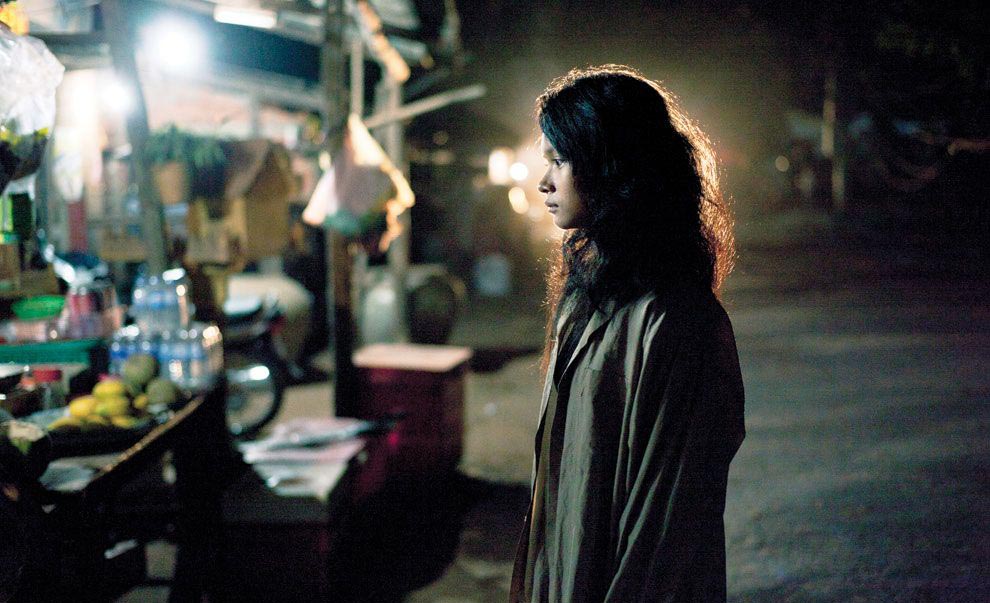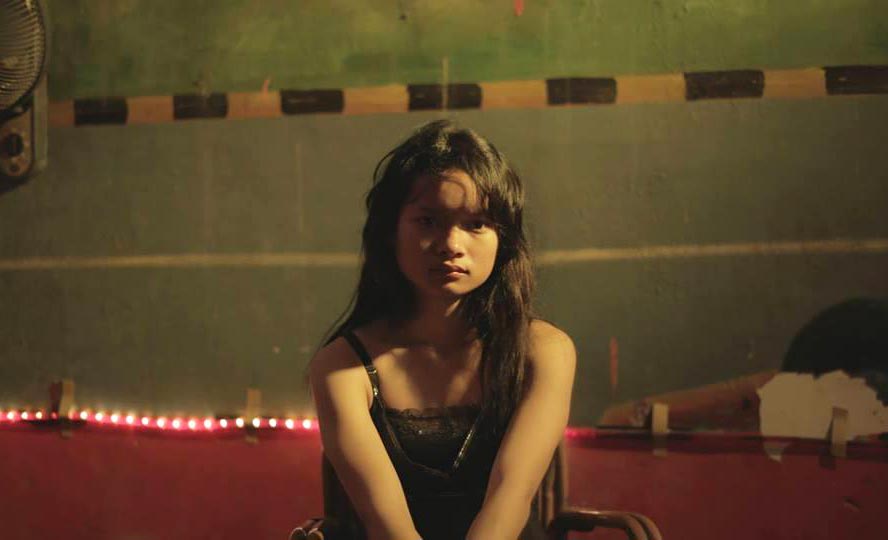Ruin Directors Amiel Courtin-Wilson and Michael Cody on Their Free-form Filmmaking
The Australian directors landed in Cambodia with no script, no finance and no crew. And they still left with a film.
"For us, it's about trying to take risks," says director Amiel Courtin-Wilson. "Further the process, and see how far you can push things before they break."
Certainly, the Melbourne-born filmmaker is not afraid of pushing the envelope. After beginning his career in documentary with films like Chasing Buddha and Bastardy, Courtin-Wilson's first fiction feature was 2012's Hail, a dark, critically divisive love story that blended naturalistic cinematography and dialogue with striking moments of visual experimentation.
A similar methodology is at work in his follow-up, Ruin, which he co-directed with Hail producer Michael Cody. Inspired by Cody's time living and working in South-East Asia, the film is a romantic drama about the relationship between a runaway prostitute and a factory worker in Phnom Penh and the desperate lengths they must go to in order to survive.
"On average I don't think we did a day shorter than 15 or 16 hours," says Courtin-Wilson of the gruelling, unconventional shoot, which was broken into two separate three-week blocks with a yearlong gap in between. "The last week we were shooting 20, 21 hour days."
Now it seems that the hard work has paid off. Since its completion, Ruin has won numerous festival awards, including the Special Jury Prize at Venice, and had its Australian debut in competition at the Sydney Film Festival. In the lead-up to their local premiere, Courtin-Wilson and Cody took the time to talk with Concrete Playground about the experience of putting the film together.

https://youtube.com/watch?v=5VEQ2Hvq_Cs
No Script, no problem
When asked about the project's origins, both directors grin. "We landed in Cambodia without a script, without any finance and without any sense of a story," remembers Courtin-Wilson. "Within about a month we had some finance, we had a cast, we had a crew from Australia, and we had a 15-page outline. So in many ways it was just an experiment in sheer momentum."
The Australian crew came together under the banner of Courtin-Wilson's film collective, Flood Projects. Many of them worked for free, even paying for their own plane tickets to Cambodia. "If someone's prepared to do that, they're obviously there for the right reason," says Cody, "and that's very humbling. It means that the process is genuinely very collaborative; everyone's invested in it, and we're super grateful to them for being there."
Courtin-Wilson agrees. "I think what happens when you give over to that process without the usual hierarchies, when someone can literally have four or five roles, is that everyone is so invested and so excited," he says. "Someone can be down the street for lunch and find some amazing potential cast member, or find an amazing cafe for a scene … it was the most exhilarating filmmaking experience I've ever had."

A road movie with no road map
Part of Ruin's naturalistic feel comes from the filmmakers being willing to draw from their environment. "Structurally, working with a road movie paradigm meant that you could expand or contract the film according to who you met along the way," says Courtin-Wilson. "It's episodic in nature … we'd meet an amazing fisherman in a province halfway through shooting and then we'd sit down and write a scene for him, and integrate that into the story.
"The idea that filmmaking has to be a one-way street in which you can't fundamentally reinvent the film in the edit..." Courtin-Wilson trails off, shaking his head. "If anything, we were trying to inject more chaos into the process, because that's where the discoveries lie."
"I'm pretty sure [the cast] thought we were just mental cases for a lot of the time shooting the film," says Cody, laughing.

The guidance of trauma
"We had a really fundamental idea of what the theme of the film was, which came from Cody's initial idea of trauma, and how trauma sits in the body," says Courtin-Wilson.
"This is a whole country that's been traumatised," adds Cody. "One thing I'm really pleased with is the way the history of the place comes through, but in an oblique way. It's subtle, as it is in everyday life there. You can feel it everywhere, all around you, but it's not discussed. These people have to deal with the reality of that history, in their lives and their relationships. You know, like living down the road from the guy that executed your father, that sort of stuff."
"In early screenings of the film we had in Cambodia," says Courtin-Wilson, "the greatest compliment [came from] showing it to a group of Cambodian artists, musicians and filmmakers, and for them to say 'this feels like Cambodia today'. If we even came close to capturing that, that's all I would ever want."

Ruin is on at the Melbourne International Film Festival on Wednesday, August 13, and Saturday, August 17. For tickets, see the MIFF website.







